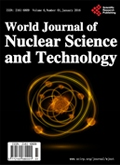' |
 |
 |
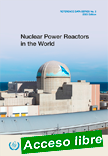 |
Nuclear Power Reactors in the World
Reference Data Series No. 2 ¦ English IAEA-RDS-2/43 ¦ 100 pages ¦ Date published: 2023
This is the 43rd edition of Reference Data Series No. 2, which presents the most recent reactor data available to the IAEA. It contains summarized information as of the end of 2022 on power reactors operating, under construction and shut down as well as performance data on reactors operating in the IAEA Member States.
|
The information is collected through designated national correspondents in the Member States and the data are used to maintain the IAEA's Power Reactor Information System (PRIS).
|
 |
 |
Operating Experience with Nuclear Power Stations in Member States 2023 Edition
IAEA/OPEX/2023 ¦ Date published: 2023
This report contains the 54th edition of the IAEA’s series of annual reports on operating experience with nuclear power plants in Member States. It is a direct output from the IAEA’s Power Reactor Information System (PRIS) and contains information on electricity production and overall performance of individual plants during 2022. In addition to annual information, the report contains a historical summary of performance during the lifetime of individual plants and figures illustrating worldwide performance of the nuclear industry.
|
Design characteristics and dashboards of all operating nuclear power plants worldwide are also presented.
|
 |
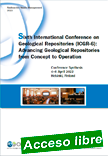 |
Sixth International Conference on Geological Repositories (ICGR-6): Advancing Geological Repositories from Concept to Operation - Conference Synthesis
NEA No. 7655 ¦ OECD - NUCLEAR ENERGY AGENCY) ¦ Date published: 2023 ¦ 76 pages
There is a consensus in the international community that geological repositories provide the necessary long-term safety and security to isolate long-lived radioactive waste. However, despite the technical merit and safety of repositories, challenges remain in many countries.
|
These challenges include building and maintaining public confidence, the availability of skilled staff and the transfer of knowledge, as well as the involvement of younger professionals. As a synthesis of the Sixth International Conference on Geological Repositories (ICGR-6) hosted in Helsinki, Finland in April 2022, this report discusses the significant progress made in developing geological repositories over the past two decades and addresses the challenges that remain in many countries. It covers various aspects of the geological repository, including the younger generation's involvement, the status of national geological repository projects, research and development activities, building and maintaining human capacity, and ensuring stakeholder confidence. This publication provides valuable insights for decision-makers, regulators, implementers, scientists, young professionals and other stakeholders interested in the safe construction and operation of long-term geological repositories.
|
 |
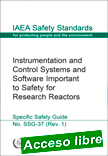 |
Instrumentation and Control Systems and Software Important to Safety for Research Reactors
IAEA Safety Standards Series No. SSG-37 (Rev. 1) ¦ English ¦ STI/PUB/2051 ¦ 81 pages ¦ Date published: 2023
This publication provides specific recommendations on research reactor instrumentation and control systems and software important to safety, including instrumentation and control system architecture and associated components, from sensors to actuators, operator interfaces and auxiliary equipment, to meet the relevant requirements of IAEA Safety Standards Series No. SSR-3, Safety of Research Reactors.
|
The recommendations and guidance apply to both the design and configuration management of instrumentation and control systems for new research reactors and the modernization of the instrumentation and control systems at existing research reactor facilities. In addition, this Safety Guide provides recommendations and guidance on human factors engineering and human-machine interfaces, and for computer based systems and software for use in instrumentation and control systems important to safety. This Safety Guide is a revision of IAEA Safety Standards Series No. SSG-37, which it supersedes.
|
 |
 |
Member States’ Experiences and Insights from Maintaining Safety, Security and Reliable Nuclear Industry Operations During the Covid-19 Pandemic
Technical Reports Series No. 491 ¦ English ¦ STI/DOC/010/491 ¦ 116 pages ¦ Date published: 2023
The ability of the nuclear industry to continue to operate safely, securely and reliably during special circumstances such as a pandemic is essential and depends upon the effectiveness of its preparation, response and recovery plans as well as the ability of relevant organizations to adapt and respond to unforeseen situations.
|
The purpose of this publication is to share experience with regard to managing and regulating facilities and activities during the COVID-19 pandemic, and to assist Member States in considering further actions to improve preparedness and response in relation to the ongoing pandemic and any future ones. The effective sharing of operating and regulatory experience is intended to have a positive influence on the response to, and recovery from, such global events. This publication is therefore written for operating organizations, regulatory bodies, competent authorities, research and technical support organizations, contractors and vendors.
|
 |
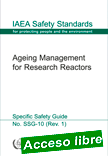 |
Ageing Management for Research Reactors
IAEA Safety Standards Series No. SSG-10 (Rev. 1) ¦ English ¦ STI/PUB/2050 ¦55 pages ¦ Date published: 2023
his Safety Guide provides practical guidance and recommendations on ageing management for research reactors, to meet the relevant requirements of IAEA Safety Standards Series No. SSR-3, Safety of Research Reactors. It is intended for use by operating organizations in establishing, implementing and improving ageing management programmes for research reactors, and by regulatory bodies in verifying that ageing of research reactors is being effectively managed.
|
The Safety Guide focuses on managing the physical ageing of systems, structures and components important to safety, and also provides guidance on safety aspects of managing obsolescence. This Safety Guide is a revision of IAEA Safety Standards Series No. SSG-10, which it supersedes.
|
 |
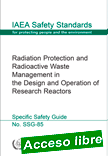 |
Radiation Protection and Radioactive Waste Management in the Design and Operation of Research Reactors
IAEA Safety Standards Series No. SSG-85 ¦ English ¦ STI/PUB/2049 ¦ 105 pages ¦ Date published: 2023
This Safety Guide provides recommendations on radiation protection and radioactive waste management in the design and operation of research reactors, to meet the relevant requirements of IAEA Safety Standards Series No. SSR-3, Safety of Research Reactors. It identifies important components that should be considered at the design stage with regard to facilitating radiation protection and radioactive waste management.
|
It also recommends good practices in implementing operational radiation protection and radioactive waste management programmes, and in their optimization. This Safety Guide is a revision of IAEA Safety Standards Series No. NS-G-4.6, which it supersedes.
|
 |
 |
Vendor and User Requirements and Responsibilities in Nuclear Cogeneration Projects
IAEA Nuclear Energy Series No. NR-T-2.17 ¦ STI/PUB/2064 ¦ 100 pages ¦ Date published: 2023
Nuclear cogeneration to produce electricity and process heat for nonelectric applications such as desalination, district heating or cooling or hydrogen production can play an important role in reducing dependence on fossil fuels. The implementation of nuclear cogeneration projects is inherently complex and such projects require a clear understanding of actions and responsibilities during the design, operation and management phases.
|
This publication focuses on analysing the requirements and responsibilities of users and vendors and correspondence between them through the life cycle to of a nuclear cogeneration project, highlighting experience and lessons learned from retrofit and new build projects.
|
 |
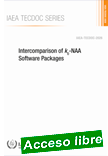 |
Intercomparison of k0-NAA Software Packages
IAEA-TECDOC-2026 ¦ 78 pages ¦ Date published: 2023
This publication presents the results of an IAEA organized intercomparison exercise on codes used in the application of the. Neutron Activation Analysis (NAA) k0 method. NAA is the most common technique implemented in research reactors worldwide. It allows the determination of the elemental composition of samples weighing from micrograms to kilograms. The k0 method for NAA has greatly facilitated the implementation of NAA at new facilities. It allows for the determination of elemental mass fractions, together with their uncertainties, without the need for sample-matched reference materials.
|
As a consequence, various software packages for the application of this method have been developed. In 2021, the IAEA initiated, an intercomparison exercise of k0 software packages, in which the software contributions to the uncertainty budget was determined. The developers of all known k0 software packages were invited to participate, and all but one of the invited packages were represented in the exercise, including the two widely available codes and three codes developed in particular institutes for their own purposes.
|
 |
| |
|
|
 |
| |
|
|

|
|
|
| |
|
|
| |
| |
|
|
| |
| |
|
|
| |
| |
|
|
|
| |
| |

